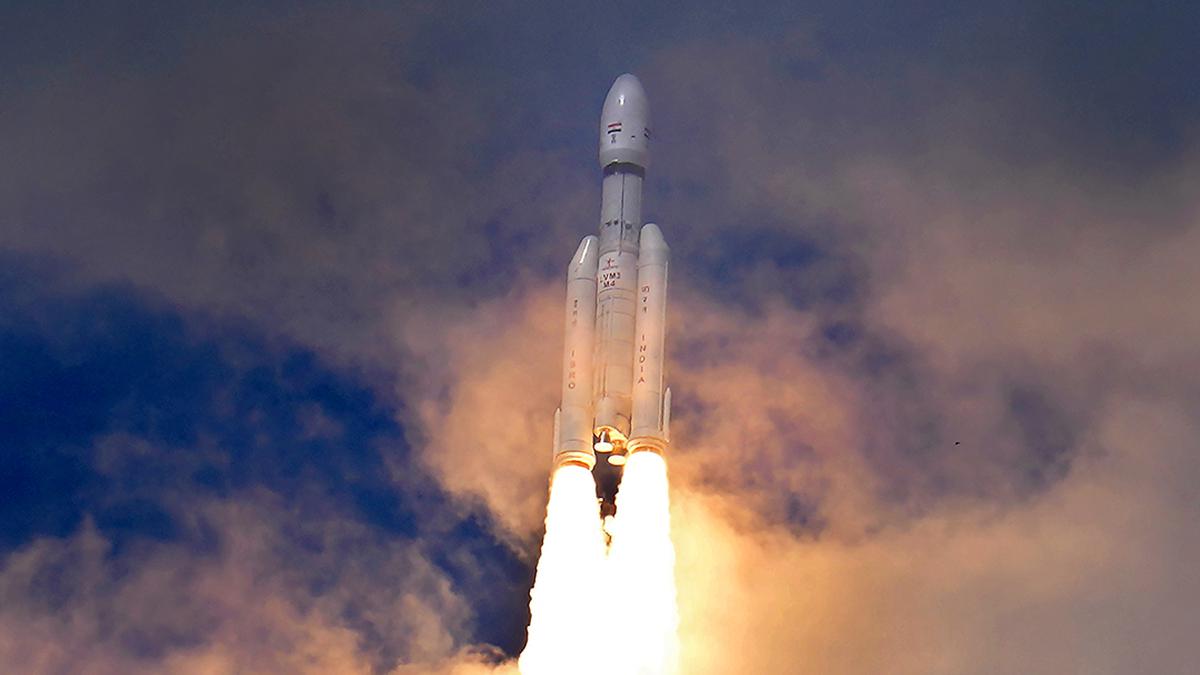
Science This Week | Chandrayaan-3 mission begins, scientists declare a new geological epoch and more Premium
The Hindu
Check out The Hindu’s science wrap featuring top 7 stories on new discoveries, findings, and studies in the scientific world from this week.
With the Chandrayaan-3 mission kicking off this week, the field of science has been abuzz with intriguing studies and discoveries. Here are the latest updates from field of science.
India’s third lunar mission, Chandrayaan-3, which got off to a thrilling start from the Satish Dhawan Space Centre, Sriharikota, on Friday afternoon, will attempt to soft-land a Lander on the lunar surface and deploy its six-wheeled, box-shaped Rover. Building upon the success of its predecessors, Chandrayaan-1 and Chandrayaan-2, the third lunar mission is set to push the boundaries of space discovery and innovation. According to ISRO, the Chandrayaan-3 mission has three major objectives: demonstrate safe and soft landing on the surface of the Moon, conduct rover operations on the Moon, and conduct on-site experiments on the Lunar surface.
Evidence is mounting about what may be a wealth of organic molecules - a potential indicator of life - on Mars, with new findings from NASA's Perseverance rover suggesting the presence of a diversity of them in rocks at a locale where a lake existed long ago. Scientists obtained evidence indicating the presence of organic molecules in multiple rock samples, including some collected for potential return to Earth for future analysis. The researchers noted that evidence of such molecules is not proof of life past or present on Mars, and that non-biological processes remain a more likely explanation.
A couple from Mesa, Arizona, will be sending their DNA into space in the upcoming Enterprise mission being launched by Celestis, a space burials company based out of Houston, Texas. While space burials are not a new concept, the company is preparing for their first deep space flight, orbiting around the sun indefinitely. The flight will carry approximately 196 capsules, including the ashes or DNA of notable individuals such as Gene Roddenberry, the creator of Star Trek, along with the remains of actors James Doohan and Nichelle Nichols, who starred in the science-fiction saga. Presidents George Washington, Dwight Eisenhower and John F. Kennedy will also be represented.
Endometriosis, a reproductive disease affecting one in 10 women worldwide, involves the growth of lesions on pelvic organs such as the ovaries. A new study points to a link between a bacteria associated with infections in the oral cavity, and endometriosis. Researchers found a species of Fusobacterium bacteria in 64% of endometriosis patients, while it was present in 7% of those who did not have the condition.
A three-year surveillance study from March 2017 to February 2020 in Kolkata has found an amoeba pathogen that previously did not cause any amoebiasis (a form of diarrhoea) in humans has now become pathogenic. Surprisingly, a team of researchers from the Kolkata-based National Institute of Cholera and Enteric Diseases (ICMR-NICED) found that not only had the amoeba pathogen — Entamoeba moshkovskii — turned pathogenic, it was the leading cause of amoebic infections in humans; more than half of the amoebic infections were caused by this pathogen.
A 2009 study found that the DNA of such individuals lacked 25 base-pairs in a gene crucial for the rhythmic beating of the heart (scientists call it a 25-base-pair deletion). Intriguingly, this deletion was unique to the Indian population and, barring a few groups in Southeast Asia, was not found elsewhere. Scientists estimated that this deletion arose around 30,000 years ago, shortly after people began settling in the subcontinent, and affects roughly 4% of the Indian population today. A more recent study found stark genetic differences between people from different regions of the subcontinent. While this is to be expected between different countries in the region, it was actually evident even at the level of smaller geographies within India. These variants can have a major effect on important physiological parameters, leading to higher risk of cardiovascular disorders, diabetes, cancers, and mental disorders.











